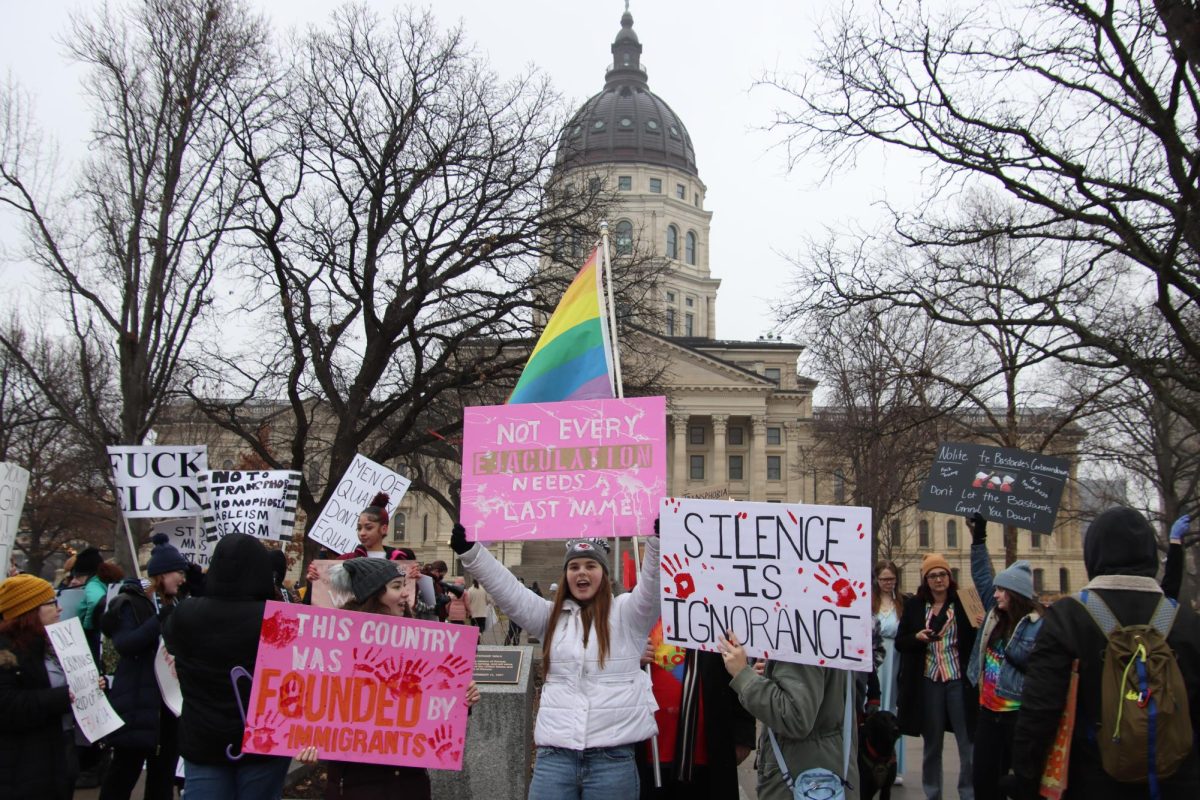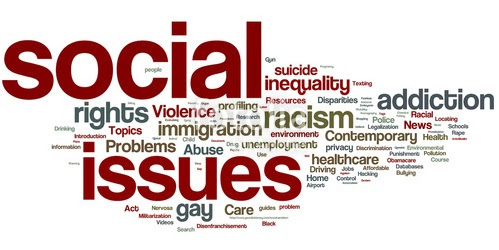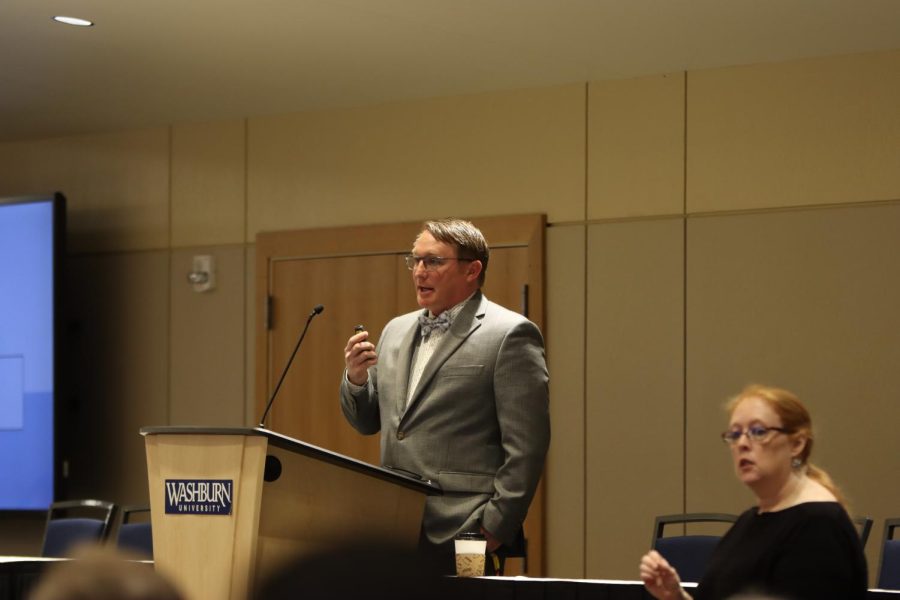On Feb. 26, outside of Strong Hall, the University of Kansas’ main office building, several students and faculty members gathered to protest the recent ban on gender-inclusive campus spaces, including bathrooms and the Grace Pearson Scholarship Hall.
“[The ban] is a direct attack on minority rights…KU has an obligation to protect its trans students,” said Dustin Campbell-Waldeck, KU student.
The protest was assembled by GPeeps for Gender Inclusive Assignments, a group assembled from Grace Pearson Hall to advocate for gender-inclusive housing and trans rights. They currently have an email and call campaign to keep gender-inclusive spaces on campus.
Michael Wieber, a Grace Pearson resident and protest attendee, explained the situation that sparked the protest.
“We’ve been having gender-inclusive assignments in Grace Pearson for the past three years officially sanctioned by [KU] housing,” Wieber said.
However, an email sent by KU Housing Feb. 13 claimed “The only spaces designated by [KU’s Housing] department for gender-inclusive assignments in Grace Pearson for 2024-25 are two rooms (8 spaces) on the first floor.”
This accusation confused several residents of Grace Pearson Hall because of the fact that KU Housing for the past three years had been aware that the floors, rooms and bathrooms of Grace Pearson were gender inclusive.
“They’re effectively lying, saying it was a mistake on their end when they’ve officially sanctioned it for the past three years,” Wieber said.
KU Housing determined that Grace Pearson was in violation of the International Building Code, specifically the 2018 International Building Code, which sets regulations on gender-inclusive bathrooms, Wieber said. However, the International Building Code does not set regulations on gender-inclusive room assignments or floors.
The email also stated, “In similar areas throughout Housing buildings, students who are assigned to rooms on floors with multi-stalled bathrooms are of the same gender as the multi-stalled bathroom on their floor.” Wieber explained Housing has no policies that require rooms or floors to be segregated by gender.
Just now is KU beginning to act through these accusations made towards the residents of Grace Pearson Hall.
“The ultimate bottom line is they are over complying with federal executive orders,” Wieber said.
He cited this phenomenon as “preemptive compliance,” in which organizations comply with governmental changes or orders before they have been enacted or had the chance to be challenged.
“It really is that no one is forcing KU to do any of this. KU is not going to the avenues to make sure that we can still have GIA housing,” said Anthony Alvarez, Grace Pearson’s proctor.
Alvarez explained that KU has found ways to continue some DEI initiatives through renaming offices, yet they haven’t done the same with gender-inclusive housing.
“They have just heard about these executive orders and have decided to go for the building that could potentially be something that blocks their funding,” Alvarez said. “Even in the world we’re in right now, the federal government is not coming down on the University of Kansas. Why are we doing this in the first place?”
Alvarez offered his insights into KU’s newfound diligence in following executive orders that aren’t “officially the law of the land,” along with Kansas state policies that act to limit trans people’s access.
“[The] Kansas legislature has passed some of these laws before, and KU has not officially complied with them. For instance, the bathroom law has been law since about 2022. To my knowledge, there have been no instances of KU enforcing that certain people can’t go into the bathroom that they want to. It’s up to their discretion for things like that, that are kind of impossible for the state government to really enforce,” Alvarez said.
On the front lawn of Strong Hall, protesters chanted a variety of slogans, such as “No freedom for compliance” and “Rock Chalk, Gayhawks” in the reclamation of a derogatory term coined by Westboro Baptist Church for queer KU students.
“A lot of anti-trans sentiment, especially when it comes to bathroom bills and such, surrounds the idea of people…having to adhere to a certain gender they are assigned. But that is not the case for all, especially for people who are disabled, who have illnesses, such as women with PCOS,” Ricky Zhao, KU student, said. “And the idea of what is gender-conforming is very much based on Eurocentric beauty ideals—very much white supremacy—and this largely affects women of color, who are masculinized in today’s society due to the fact that their bodies and their faces do not fit the standard of what white Western femininity is supposed to appear as.”
Protesters were impassioned by a concern for trans people’s rights to be protected. They also served to reaffirm the existence of trans identities in the face of recent legislation and the denial of trans-self-determination.
“Stephenson Scholarship Hall supports trans rights!” Campbell-Waldeck said.
Edited by Eden Conrad and Jeremy Ford.

























